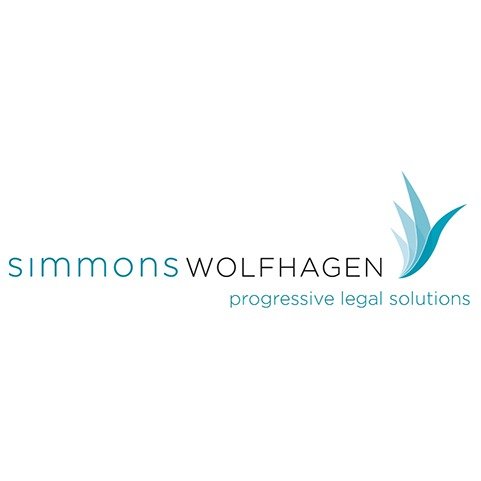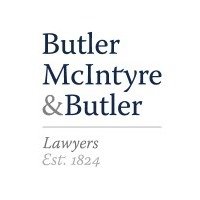
Jovanovic Lawyers & Conveyancing
Hobart, Australia
Jeanette Jovanovic
Jeanette Jovanovic is an experienced litigation lawyer specialising in personal injury law, workers compensation, commercial law, wills and estates and has been practising for over 30 years. Jeanette’s work in the field of business and finance includes commercial and private clients.
A graduate of the University of Tasmania, Jeanette was admitted as a practitioner of the Supreme Court of Tasmania in 1982.
Jeanette holds a Bachelor of Arts, Bachelor of Laws and a Diploma of Education from the University of Tasmania.
Jeanette also advises on the resolution of disputes in a mediation environment with a view to maximising clients’ claims and avoiding lengthy litigation. However, Jeanette will also conduct her client’s litigation in court up to the dispute resolution stage to achieve the maximum result for her clients.
Dominique ter Beek LLB
Dominique is our conveyancer and personal assistant to Jeanette. Dominique holds a Bachelor of Laws, is a qualified lawyer but is not currently practising in her field as she has a young family. Dominique manages all our conveyancing matters and specialises in that area.
Free • Anonymous • Expert Lawyers
Need Personal Legal Help?
Connect with experienced lawyers in your area for personalized advice on your specific situation.
No obligation to hire. 100% free service.
Practice areas
Personal Injuries
- Have you been involved in motor vehicle accident?
- Injured at work?
- Injured going to or from work?
- Injured in a public place or private home?
- Injured as result of medical negligence?
If you have sustained injuries as a result of any of the above, AND/OR IF ANY OF THE ABOVE HAS CONTRIBUTED TO A SIGNIFICANT IMPAIRMENT and/or if you have suffered loss and/or damages, you may be entitled to compensation and other associated benefits.
Compensation for Motor Vehicle Accidents
Jeanette Jovanovic, with over 35 years’ experience in this field, has been successful in obtaining compensation for motor vehicle accident victims. Most people involved in motor vehicle accidents are unaware of their entitlements or the extent or nature of those entitlements.
There are a number of circumstances when compensation is payable, even in single vehicle accidents, such as when debris or timber has been left on the road by other vehicles or where the careless act of another driver causes an accident. Compensation can often be claimed even though the driver or person who caused the accident cannot be found.
Funding for assistance under the statutory scheme of compensation for motor vehicle accidents is through the payment of compulsory premiums (CTP insurance) for registered motor vehicles in Tasmania. The Motor Accidents Insurance Board administers benefits and payments to eligible claimants under the scheme. To ensure cover, all motor vehicle accidents should be reported to the police.
In some cases, a claimant may pursue a common law (personal injury) claim for injuries sustained in a motor vehicle accident.
Compensation for loss suffered may include medical, hospital and ambulance expenses, physiotherapy and other health services, rehabilitation services to help get you back to work, domestic help expenses, compensation for loss of income if you are unable to work, as well as monetary payments for pain and suffering and permanent impairment.
If you have been involved in an accident, we can assist you with making a claim, reviewing any offer of settlement made, and can advise in which circumstances liability can be attributed and whether a personal injury claim should be pursued.
Jeanette Jovanovic, with over 35 years’ experience in this field, will ensure you obtain the best possible outcome.
Compensation for injuries suffered at work
If you have suffered an injury, either mental or physical ailment related to your occupation, you may be eligible for workers compensation. Workers compensation laws are aimed at supporting those who suffer an injury or disease arising out of or during the course of their employment, or for which their employment was a substantial contributing factor.
The workers compensation system may provide injured workers with weekly payments while they are incapacitated for work, medical and other expenses, rehabilitation expenses, and monetary sums for permanent impairment.
In some cases, where you can show that your injuries were sustained because of your employer’s negligence, you may be able to pursue a negligence claim.
Workers compensation claims involve a legally complex and convoluted process which few workers understand.
Jeanette Jovanovic, with over 35 years’ experience in this field, will ensure you obtain the best possible outcome.
Public Liability
Public liability claims include claims made against owners or occupiers of public spaces such as shopping centres, sporting facilities or theme parks (as well as certain private places) for personal injury that can be attributed to the negligence of the owner or occupier. Slip and fall incidents form a large portion of such claims, relating to injuries sustained due to slipping, falling, or tripping in shopping centres or carparks. Public liability claims may also arise from injuries sustained as a result of malfunctioning equipment such as faulty doors, escalators and lifts, or broken chairs.
Jeanette Jovanovic, with over 35 years’ experience in this field, will ensure you obtain the best possible outcome.
Dog Bite Claims
A bite by a dog is classified as a public liability claim. A claim for damages could include medical expenses, lost wages and permanent scarring. The bite does not need to be major to be eligible for compensation. After receiving a dog bite, medical attention should be sought, and a report made to police and the local council. It is also essential that the owner’s details are also sought. We specialise in personal injury which includes dog bite claims.
Medical Negligence
Medical negligence claims encompass a category of potential claims against health providers such as doctors, specialists, nurses, surgeons, dentists, hospitals, and emergency clinics. These claims are made under the Civil Liability Act 2002.
Generally, a person who suffers injury or loss due to the negligence (malpractice) of a health care professional may be entitled to compensation if he or she can prove that the conduct causing the injury fell below the standard of practice accepted within the profession, and the injury or loss could have been prevented had the requisite standard been applied. Determining whether medical negligence has occurred is particularly complex with a range of factors to consider. Expert reports and opinions are usually required, and it is important to obtain legal advice relevant to your individual circumstances.
Jeanette Jovanovic, with over 35 years’ experience in this field, will ensure you obtain the best possible outcome.
To recapitulate
If you’ve been injured in a public place, at work, in a motor vehicle accident or other situation, it is important to obtain legal advice as soon as possible, so you are aware of your rights and entitlements and the appropriate claim can be made. Time limits apply when claiming compensation and generally, you will only have one chance to obtain the best compensation outcome possible.
Our principal, Jeanette Jovanovic has practised predominantly in personal injury and workers compensation law for over 35 years and offers high level expertise, success and assistance in this complex area. We are committed to achieving excellent results for our clients who are often facing difficult and challenging times due to their circumstances.
If you need any assistance, contact Jeanette on [email protected] or call 03 6223 3344 for a no-obligation discussion and expert legal advice.
Residential Conveyancing
Deciding that you would like to sell or buy a property is an important event in your life, and at Jovanovic Lawyers & Conveyancers, this is something we can help you with.
We can provide you with a professional and inexpensive conveyancing service.
We specialise in residential conveyancing and make the entire conveyancing experience stress-free.
We offer fixed legal fees of $990 for sales and $1,100 for purchases - not including the regular disbursements.
If you are buying, we provide the following services:
- Review your contract to confirm your interests are protected prior to signing.
- Draft or amend your contract prior to signing.
- Complete the necessary searches including searches with the local council, Land Titles Office and other organisations.
- Connect with your financial institution to organise settlement if required.
- Prepare the necessary documentation required for settlement.
- Liaise with the other side to book settlement.
- Attend settlement on your behalf.
If you are selling, we provide the following services
- Review your contract and ensure it protects your interests.
- Draft your contract for you or amend it where necessary.
- Undertake the searches concerning the property you are selling.
- Connect with your financial institution to organize settlement if required.
- Prepare the necessary documentation required for settlement.
- Liaise with the other side to book settlement.
- Attend settlement of your behalf.
We would recommend you have your contract reviewed prior to signing to ensure that your interests are protected. The consequences of not reviewing your contract by a qualified lawyer can be costly.
Please do not hesitate to contact Jovanovic Lawyers & Conveyancing for any questions you have concerning your conveyancing needs. We can be contacted on 03 6223 3344.
Commercial law concerns a range of transactions and legal issues affecting a business enterprise. A business should be supported by appropriate professional advice to ensure sustainability and growth, to minimise commercial disputes and to protect owners and directors from personal liability.
Buying or selling a business
Buying or selling a business requires careful planning to ensure that agreed terms and conditions are properly negotiated and documented in a written contract. The contract should detail the parties’ rights and obligations, deal with GST and other taxation matters and set out processes to manage various contingencies.
It is common for the sale and purchase of a business to encompass other legal agreements such as ongoing commercial leases or service contracts. All should be reviewed by a legal professional with due diligence carried out prior to finalising the arrangements.
Business structures
When commencing a new venture, or buying a business, it is important to operate through the most effective legal structure. Determining the most appropriate business structure requires consideration of the parties’ personal and financial circumstances, the size and nature of the business, the regulatory environment within which the business operates, and the owners’ desire and strategies for future growth.
Common business structures include sole proprietorships, partnerships, trusts and incorporated companies. Each have their own pros and cons and vary in their complexity, reporting requirements, treatment of income tax and level of asset and personal protection for the owners.
Companies and directors’ liability
A company is an incorporated legal entity with the capacity to enter legally binding transactions in its own right. Companies are a popular choice for operating small to medium-sized businesses. Apart from some exceptions, officers and directors are generally not personally liable for the company’s debts.
When formed, one or more directors are appointed as authorised officers to conduct the company’s affairs. Directors hold a position of power and trust imposing on them several duties to act in the company’s best interests. Essentially, directors must:
- act honestly and use their powers to make decisions based on what is right for the company as a whole;
- avoid conflicts of interest and not use their position for personal profit to the detriment of the company;
- exercise care, skill and diligence in performing their duties;
- prevent insolvent trading.
Company directors face many situations and challenges that can place them in danger of breaching their fiduciary and statutory duties. In the case of uncertainty, directors should seek urgent advice to clarify their position.
Certain defences may be available to a director who has breached a duty to avoid insolvent trading and it is critical that directors of companies facing financial difficulties seek professional assistance immediately.
Commercial contracts
Businesses enter into numerous commercial transactions during their lifetime. These arrangements should be governed by a written contract which captures the parties’ negotiations, sets out their rights and responsibilities and includes essential terms such as the scope of services or products to be provided, warranties and indemnities, and dispute resolution processes.
The subject matter of a contract varies considerably, from a single transaction for the sale of a product, to the ongoing provision of services over many months. The breadth of a contract will depend on the subject matter, its duration and the complexity of the transaction.
Commercial and retail leases
Commercial and retail leases set out the legal terms and conditions through which a business may occupy premises to run an enterprise. Whether you are a lessor or lessee, a lease agreement should be formally prepared and reviewed by an experienced lawyer to ensure a balance of rights between the parties. Lease disputes may be minimised when the parties are ‘on the same page’ with respect to their legal obligations, which should be set out in a compliant written lease agreement.
Debt recovery
If you are in the unfortunate position of having to take legal action to pursue an unpaid business debt, it is important to avoid throwing good money after bad, by using a process that is legally correct, efficient, and cost effective. We can assist with issuing letters of demand, negotiating with debtors to resolve disputes over unpaid money, instigating court proceedings if necessary, and preparing and serving statutory demands on debtor companies.
We act for a range of business entities and will discuss your individual circumstances to tailor solutions for the many planned and unplanned events that occur throughout the life of your business.
Commercial disputes
Commercial disputes can often be resolved without resorting to expensive litigation and court proceedings. If not managed effectively from the outset however, disputes can become complex and protracted. We will review your situation to explain the most appropriate and cost-effective way to resolve a commercial dispute.
If you need any assistance, contact [email protected] or call 03 6223 3344 for a no-obligation discussion and for expert legal advice.
Need help with a legal matter?
Reach out to our team for expert legal guidance tailored to your situation.





